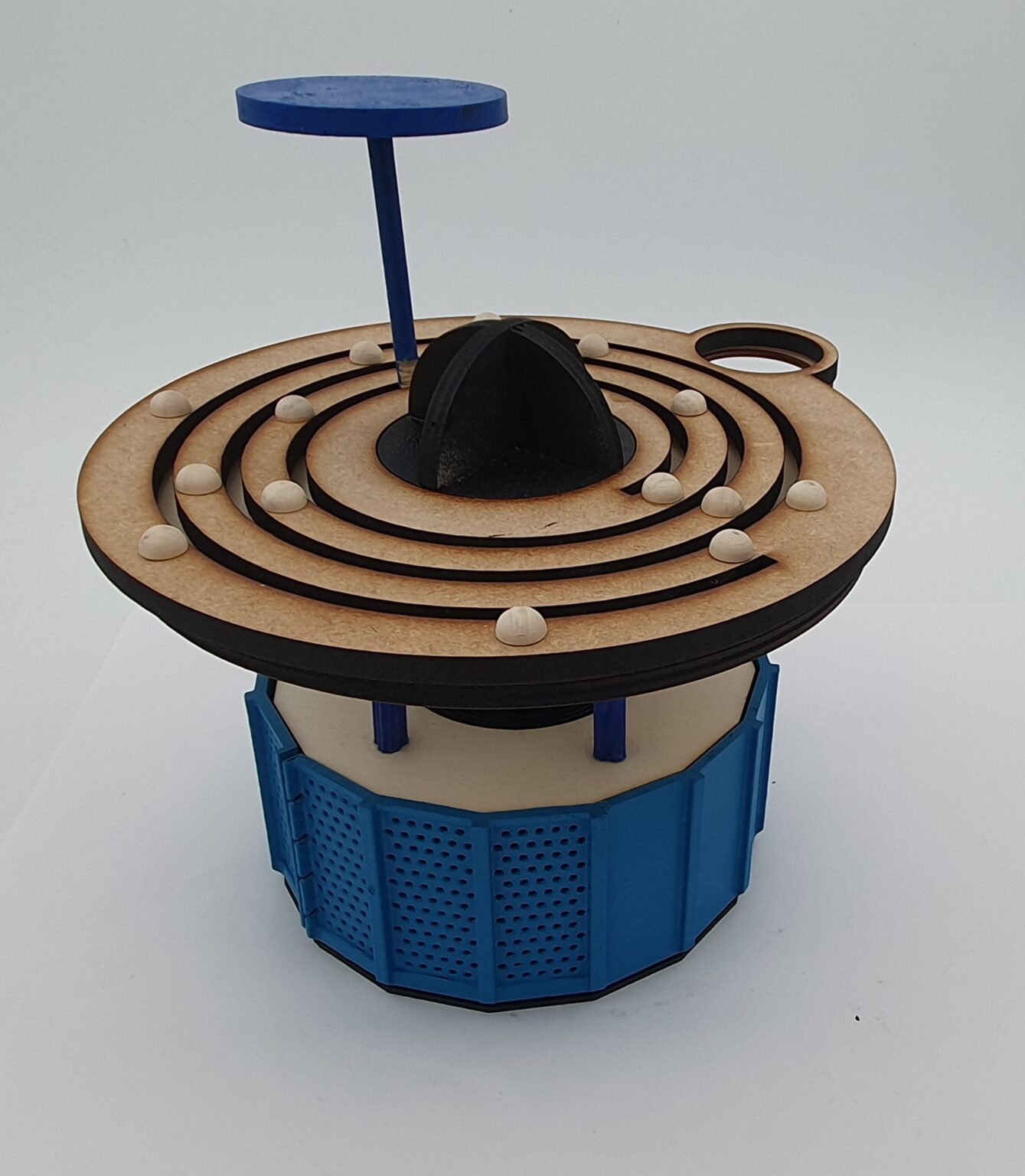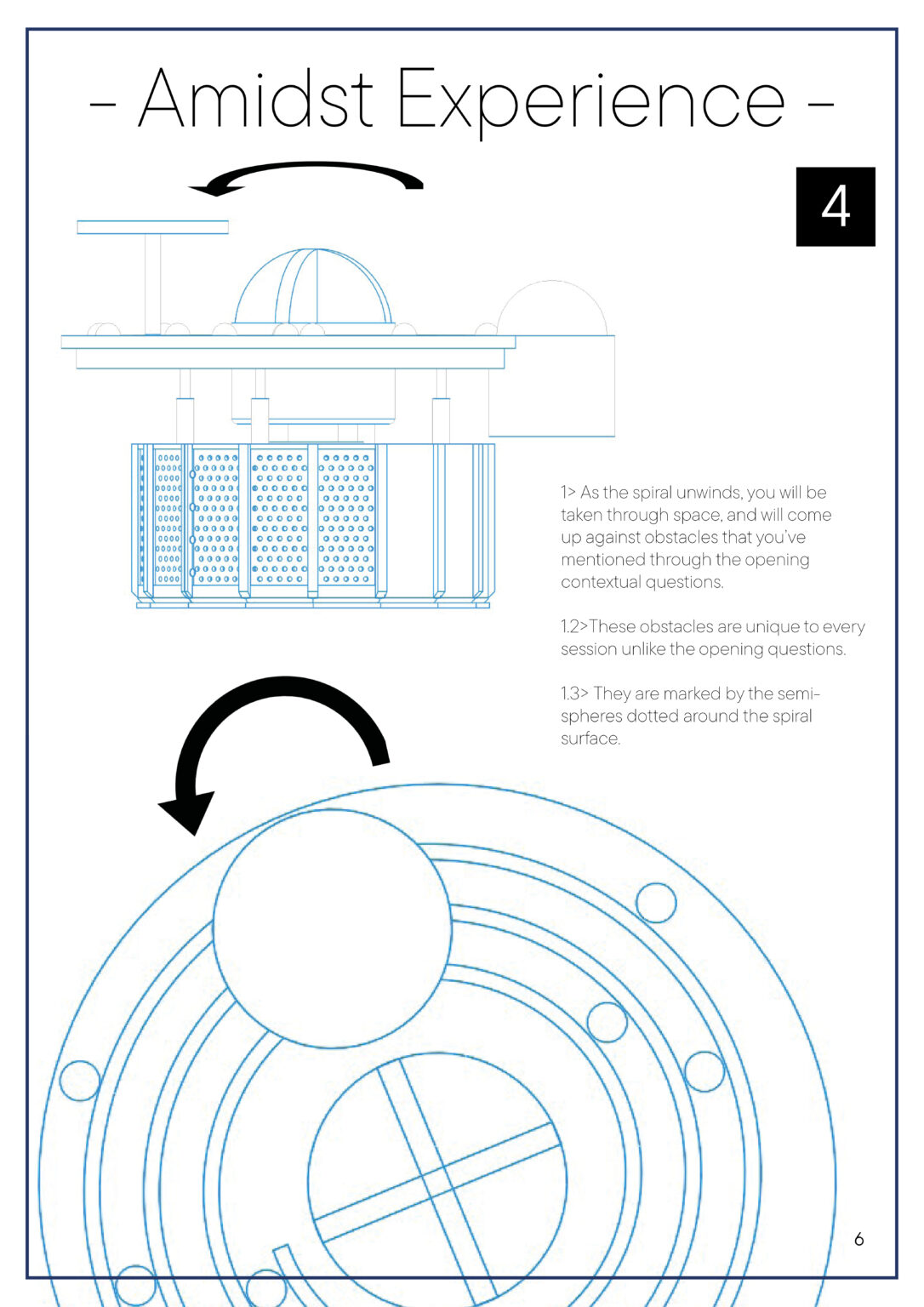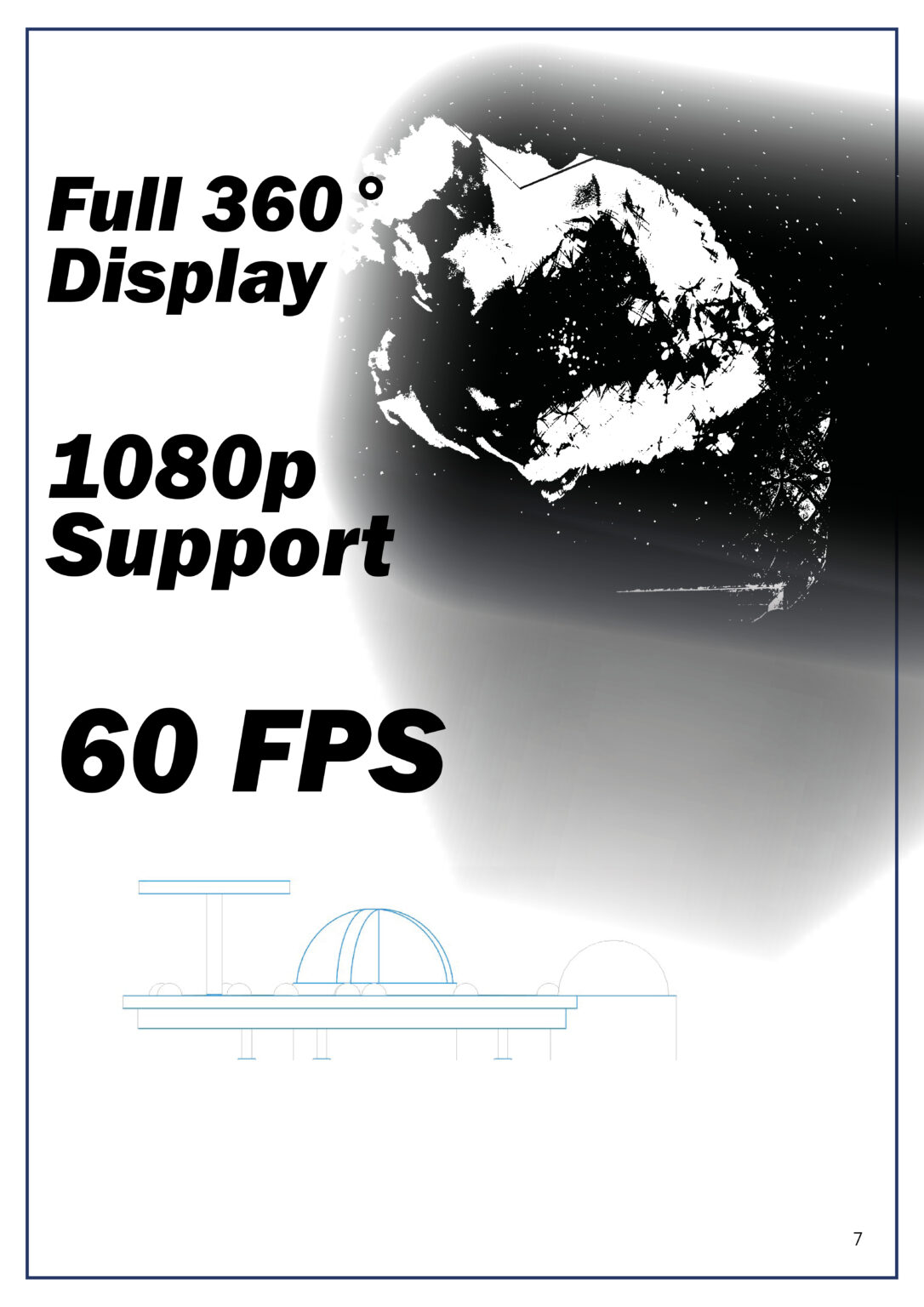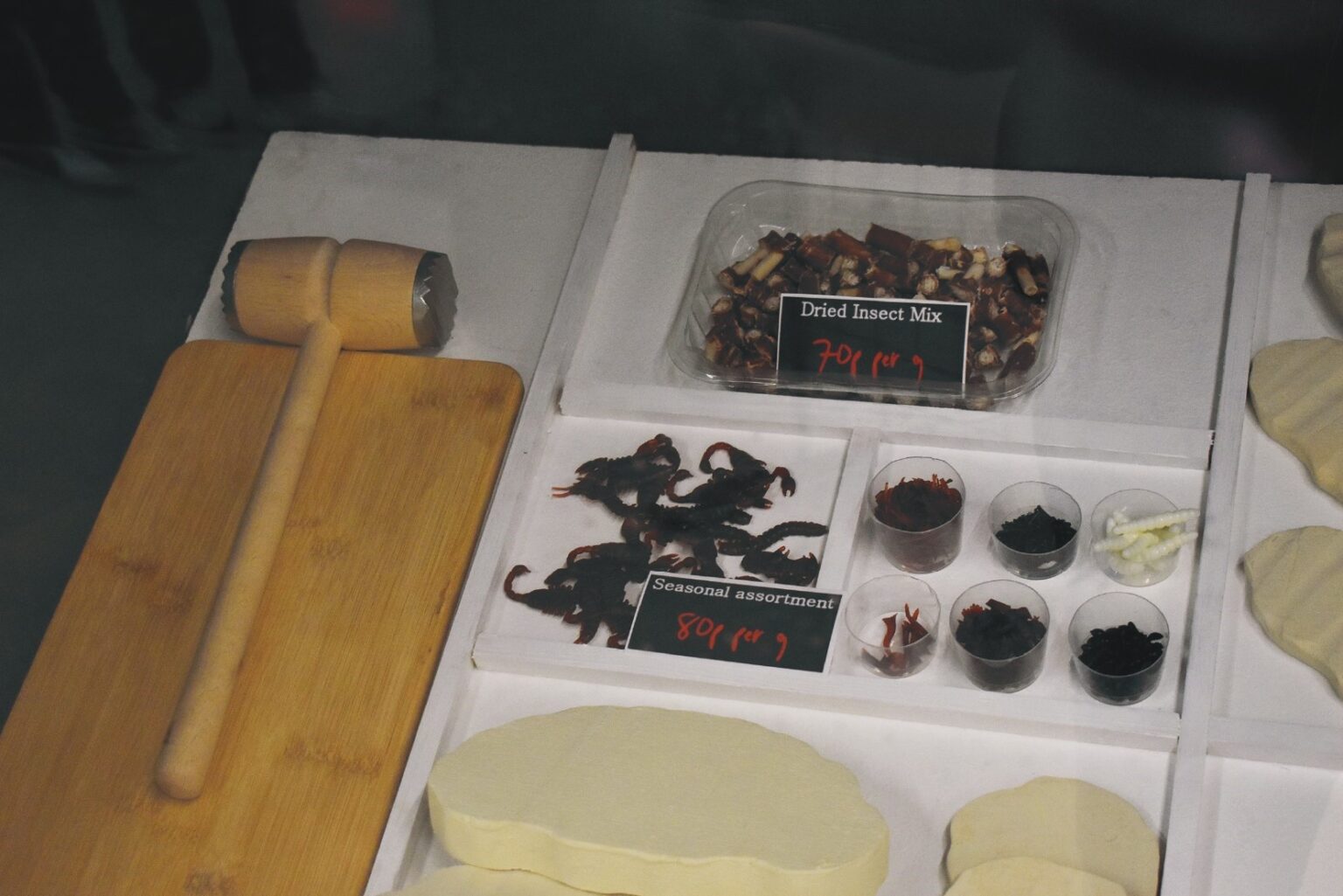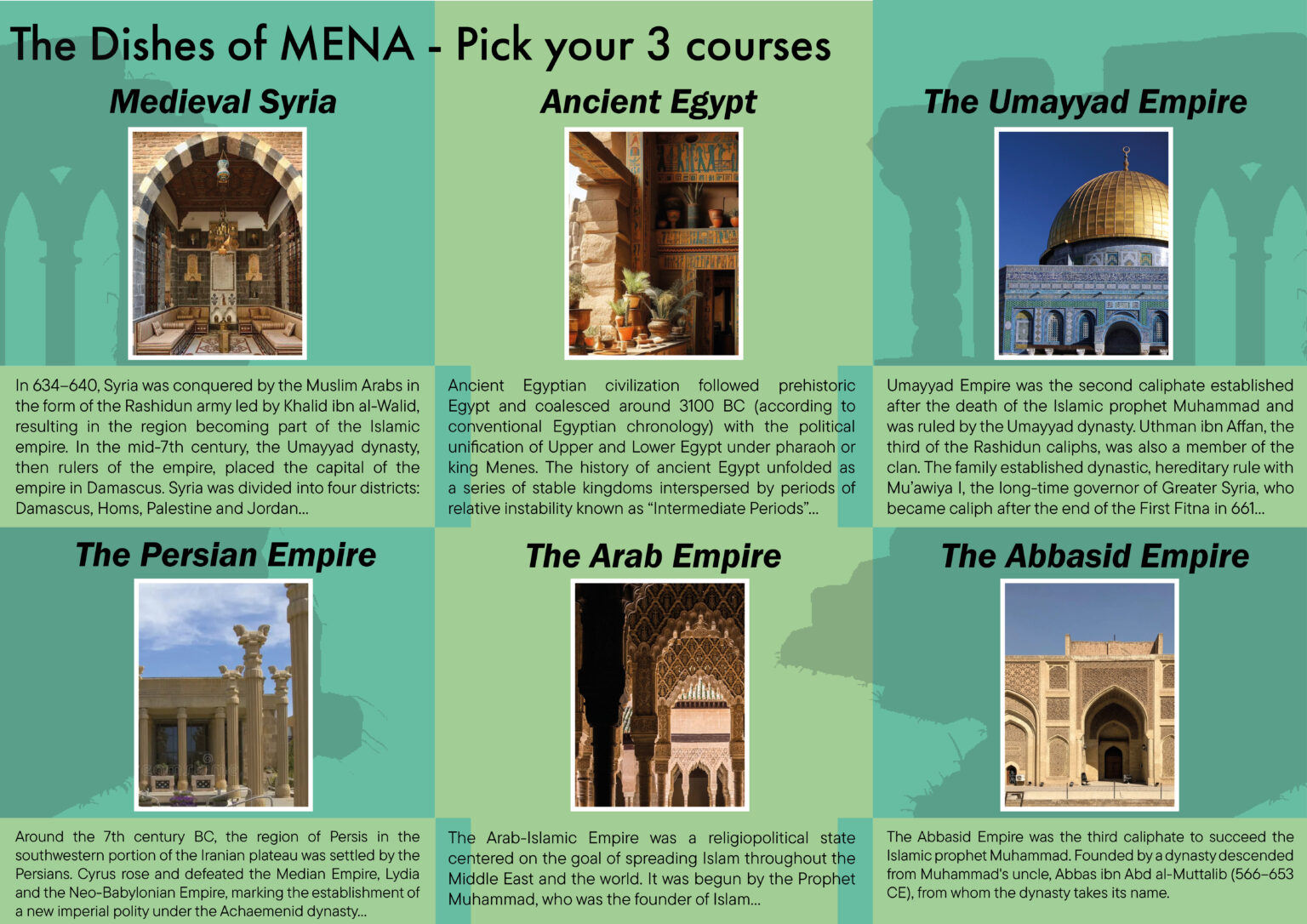Innovation & Technology Product Design
Benjamin Davis

Hello, I’m Ben.
As a designer I love to create immersive experiences. I am someone who enjoys storytelling through experience which is what I have based my self directed project on – UNTANGLE. I also fully believe that the story should be guided by the user, not the designer. My role is to build worlds but I leave blanks that allow experiences to feel different depending on who uses them. I have a desire to create experiences that allow for world-building, character building and mental transportation. My outcomes aim to take people places that they wouldn’t normally be able to experience and to make them widely accessible.
On many occasions, I have utilised the past to enhance the modern world – as seen in my Food for Thought experience. And in my self directed project I have opted for older technology (projectors) that simulate modern tech like Virtual Reality.
I hope you enjoy seeing my final year projects.

UNTANGLE – From Rumination to Meditation
Simulated with Space Engine
Introduction: For my ‘Developing Practice’ project, this was an exciting opportunity to work from my own brief, my own topic. I began with something that was not at all close to me but as the project progressed, It began to get closer to a designed experience for myself, the people I interviewed and those to whom I am close.
_ _ _ _ _ _
Homes are shrinking due to higher density living and inflation.
UNTANGLE is an experience design project that helps (but is not limited to) young students adjust to small shared living. Focusing on flatmate relations, it tackles a social, cognitive behaviour called ‘Rumination’ a cyclical and obsessive negative thought pattern involving irrational self-criticism and excessive self-doubt, which is heightened by small shared living environments.
“Survey studies have also displayed that around 80% of the population who experienced a negative event have a persistency of ruminative thoughts for long periods of time ranging from 4 to 23 years.” – ‘The Cognitive Cost of Repetitive Thinking’ Article.
_ _ _ _ _ _
UNTANGLE incentivises users to feel liberated through self-verbalisation. In the context of a journey through outer space projected onto bedroom walls, the antithesis of a small living space, it allows users to ponder their thought in a way that rewards participation and highlights every bit of progression and triumph. Using Space to explore emotion was decided as I had found through first hand accounts that people tend to feel more open to exploring thoughts when stargazing and feel overall improved mental peace and wellbeing. It is also to allow small living spaces to feel massive while the experience is ongoing.
“Mental health professionals suggest you can take steps on your own to help break the cycle of rumination… Change in environment, especially to a place that has positive associations for you” – American Psychiatric Association, March 2020.
The immersive 3D space simulation is designed to encourage positive thought processing behaviours and combat rumination. It displays how Artificial Intelligence can be used to create a personal response system to a user’s external monologue transforming it into a ride through space. Overcome fictitious obstacles representing real areas of obsession – whether it be a red supergiant star representing bottled up frustration or a brightly coloured nebula replacing anxiety about future collision with peers.
UNTANGLE aims to help users overcome these scenarios of doubt by helping them find new angles and inner peace through relaxation and anxiety reducing methods.
_ _ _ _ _ _
This project revitalises old technological experiences like the home theatre through the modern tech that is available today. I was determined to stick with a projection on a wall instead of using VR, especially within this context of easing the experience of small scale living, I think VR would be too restrictive and fell too much into ‘escapism.’ I wanted the user to still feel present in reality and in their own room despite augmenting it.
Another key element of this proposal was to produce something that would replace screentime when in bed as this is a proven activity to contribute to rumination and affect healthy sleeping patterns.
“Fatigue may be an important factor affecting executive-control resources in mobile phone addicts.” – International Journal of Environmental Research and Public Health, November 2022
_ _ _ _ _ _
Rumination is far more common in adulthood. As people are exposed to the stresses of adult life for the first time, this is when we see rumination spiral into obsessions. It is also why many people find comfort in escaping to positive memories from their formative years. Reminiscing is effective resistance against ruminative habits. I capitalised off of the childhood aspect of the experience, existing star light projectors and the connotations they have. Typically made for young children, this project is essentially a reimagining of this common childhood night time ritual but geared towards young adults.
“positive emotion during memory recall related to greater resilience, which in turn related to better mood.” – National Library of Medicine
Entomophagy – Creating Future Experiences
A Collaborative Project by –
Jemima MacFarlane
Ben Davis
Aidan Yeung
Man-Ching Kwok
Sara Dabrowska
-The Planetary Economic Group
The dominance of human activity on our planet’s health reached a tipping point, forcing governments to intervene and legislate the remediation of our increasingly compromised natural resources. The meat industry was identified as the leading cause of global deforestation in 2025. Despite corporate pushes for planetarian diets, slow adoption led to the global outlawing of conventional livestock farming and meat consumption by 2035.
Entomophagy emerged as the new normal, marking an era of efficient, sustainable food systems. Insects offered higher nutritional value while using fewer planetary resources than animal meat, fostering a reciprocal relationship between people and planet, where the health of one supports the other. Circular food systems reshaped agriculture, creating new roles, revenue streams, and collaborations across science, retail, and culture.
This exhibit, set in 2035, depicts a familiar scene: a butcher’s shop transformed, its window now filled with insect-based meats, symbolising a thriving local community adapting to new diet regulations. However, just around the corner is an abandoned alleyway which reveals the darker side. A black market for illegal animal meat which exposes people’s resistance to change. Visitors are invited to reflect on what it means to adapt sustainably and at what cost?
Food for Thought – Museum of Lost Food
Contextual Scenario: In 2035, humanity has reached the tipping point of climate change, something must be done to prevent the situation worsening. And the solution by NATO: laws against production of livestock products. Alongside this, the Middle East and North Africa have been integrating into Europe due to the hotter climate. With this, their livelihoods are threatened by lack of jobs, housing and purpose.
“An estimated 1 billion environmental migrants in the next 30 years.” – Hughes Hall, Centre for Climate Change Engagement.
_ _ _ _ _ _
Proposal for Scenario: Enter ‘Food for Thought,’ a food exhibition that displays MENA cuisine throughout human history, celebrating MENA culture and educating viewers on the history of plant based eating within these countries. Sponsored by local plant-based brands, the exhibition employs refugees -who are struggling for employment- to cook the historical foods for display. The museum delves into plant-based eating history in MENA and the ingredients are provided by sponsors – local plant based meat brands. The purpose of this intervention is to promote plant-based living, accept loss and provide funding and purpose to displaced people. Visitors can sample the foods and experience the different ages and cultures of plant-based diets.
Each room represents a different culture, from a different time. The menu for their visit replaces the museum map. This menu displays each room as an option for a starter, main and dessert allowing for the opportunity to experience the revisit the museum to experience all new eras. It is an ever-changing event to incentivise the people most apprehensive and least adaptable to the switch to stick to plant based meals. It is also makes for a great recipe building experience for families that want to take these dishes home to make for themselves.









